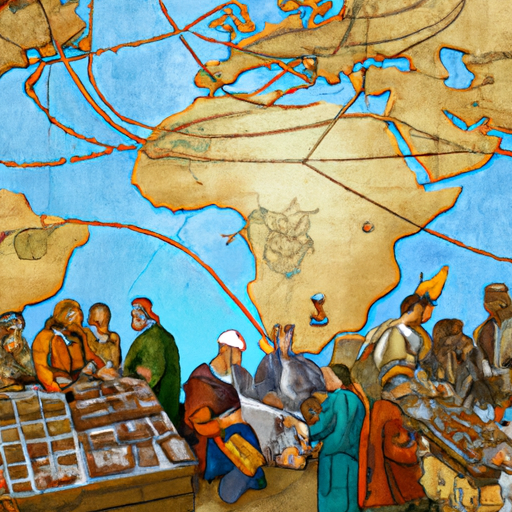The Impact of Ancient Trade Practices on Modern Business Strategies
The history of human societies is marked by the evolution of trade practices — from the simplest forms of bartering to the complex global trading systems of today. The ancient trade strategies employed by various civilizations have had a profound impact in shaping the modern business world. This article investigates these influences, looking at aspects like negotiation, transportation, and valuation. It further discusses possible ways these ancient practices might shape future business strategies to meet contemporary challenges and opportunities.
Ancient Civilizations and Trade
The earliest civilizations from Mesopotamia, Egypt, Greece, Rome, Indus Valley, China, and Central and South America conducted trade for centuries. Items like spice, silk, metals, artifacts, food, and livestock were exchanged, often across vast distances. Often, trade was the primary method of wealth accumulation and provided a critical avenue for cultural exchange and diplomatic relations.
Negotiation
In ancient times, negotiation was an essential part of trade. Traders needed to convince others of the value of their goods, often through persuasive language, signs, and symbols. Negotiations often formed the basis of relationships between traders and facilitated future exchanges. Today, negotiation remains a vital part of business strategy, with a clear focus on building long-term relationships and understanding the needs and interests of trade partners.
Transportation
Transportation methods have evolved tremendously from the use of animals and human porters in ancient times to the sophisticated logistics networks of today. However, the basic need to transport goods safely and efficiently remains unchanged. Today, businesses can learn from the ingenuity of ancient traders in creating reliable and resourceful transportation methods in the harshest of environments. This is particularly relevant in today's context of sustainability and eco-friendly business operations.
Valuation
The perception of value has always been subjective. In ancient times, the value of goods was primarily determined by their scarcity, utility, or the labor involved in its production. Modern businesses continue to use similar criteria for valuation, though we now have more refined and standardized methodologies. The understanding of value perception can help modern businesses create value for their products and services in innovative ways.
The Future of Business Strategies
There’s much to learn from ancient trade practices. Concepts such as sustainability in transportation, focus on long-term relationships in negotiation, and value perception in valuation can still find relevance in shaping modern business strategies. Furthermore, these can offer unique solutions to present-day challenges like environmental sustainability, global trade conflicts, and market saturation.
In conclusion, while the ancient ways of trading may seem far removed from our times, their strategic underpinnings continue to dictate the way we conduct business today. By acknowledging and integrating these timeless principles, the modern business world can continue to evolve and thrive.


















Comments
Leave a Comment